Finance & IT Email Marketing: A Data-Driven Approach
February 2, 2026
Home >> Web Development >> Differences Between Node.js Vs React.js

The main difference between NodeJS and ReactJS is that NodeJS is a popular JavaScript-based runtime environment that is used to build applications that can run on the server side. ReactJs is a JavaScript UI library that is used to build client-side applications for web and mobile platforms. What’s the difference between React js and Node js? What characteristics distinguish Node.js from React? Let us dive into this Node.js vs React.js debate.

Your question of what is react js and node js will be answered here. An open source, cross-platform runtime environment is Node.js which allows Javascript code to be run outside of a browser. It is crucial to take this point into mind that Nodejs is neither a programming language nor a framework. While doing a comparison of node vs react js, you need to understand the meaning of node js as well as the advantages and disadvantages of node js. To build backend services like APIs, Web apps, and mobile apps, we typically use Node.js. In this blog, you can explore head-to-head information on React vs Node js.
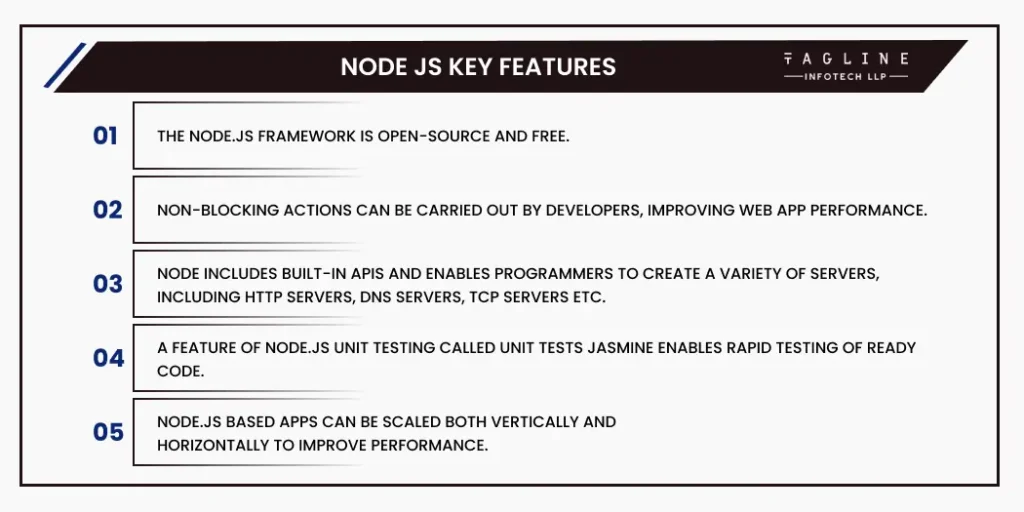
Let us delve into the primary features of Node.js.
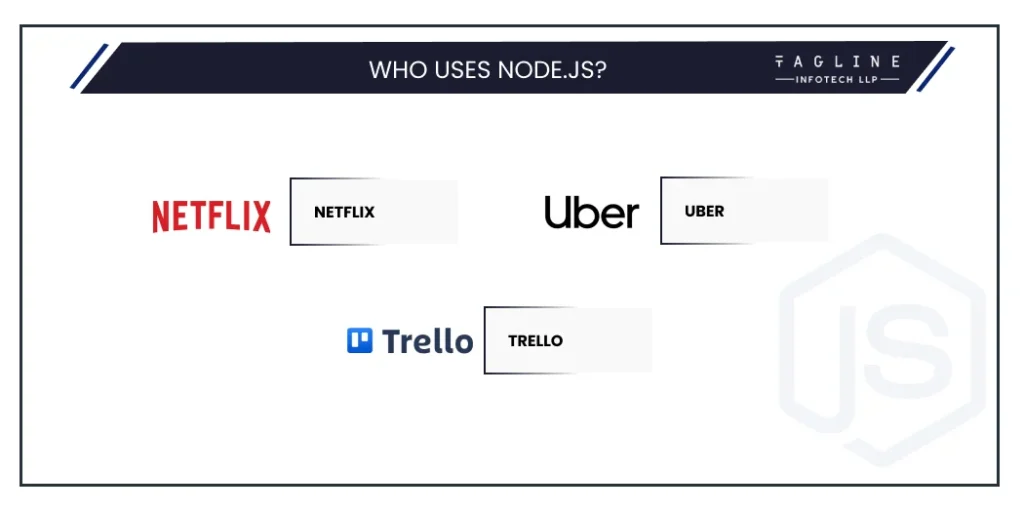
Here you can see a clear difference between node.js and react.js. In this battle of node.js vs react, many companies have made Node.js their framework of choice, a few are listed below:
Netflix: A/B testing is done by Netflix, the industry leader in online video streaming, to give its 93 million viewers a rich experience. The platform has issues with scalability and conditional dependencies for apps. The organization has picked Node.js as a solution to these problems because of its speed and lightweight design. Netflix has reduced startup time by 70% by doing this.
Trello: The server-side of the project management tool Trello is built using Node.js which has been proven useful for system updates because they require a lot of open connections, according to the Trello team.
Uber: Node.js has been cited by Uber as one of the most important technological advancements. The structure allows them to expand in response to the escalating demand for their services.
To clear up the dilemma of node js vs react js, let us also look into the benefits and disadvantages.
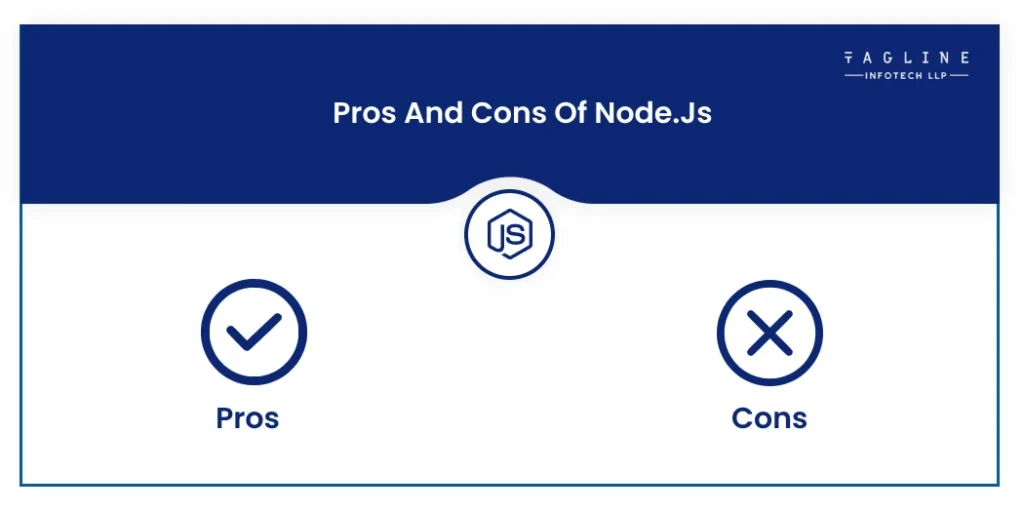
There are many pros and cons of Node js and if you are trying to figure out the advantages and disadvantages of Node js then you are at the right place. Here you can see some of the major nodejs advantages and disadvantages so you can decide if it is the right choice for your project or not. When you are doing the comparison of nodejs vs reactjs, you will see that some developers prefer to use nodejs because it can handle huge data streams. Below you can see Node.js’s advantages and disadvantages. Based on them, you can decide if react js or node js is better for you.
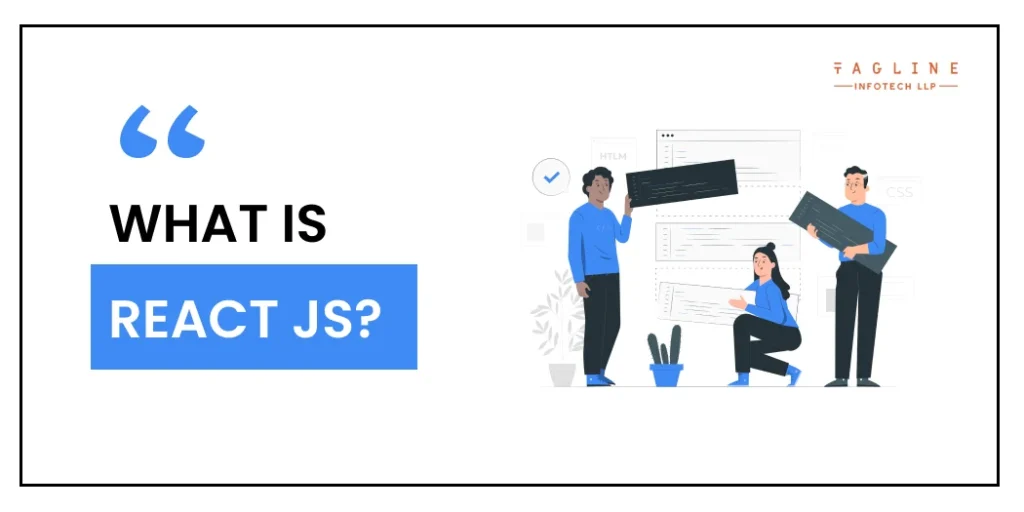
React.js is an open-source frontend toolkit for structuring the development of user interfaces for web pages and web apps. React.js was created to enable the creation of dynamic libraries with excellent speed. For instance, while individuals are conversing, this technology is utilized to display news feeds. AngularJS and Vue.js are alternatives to React.js.
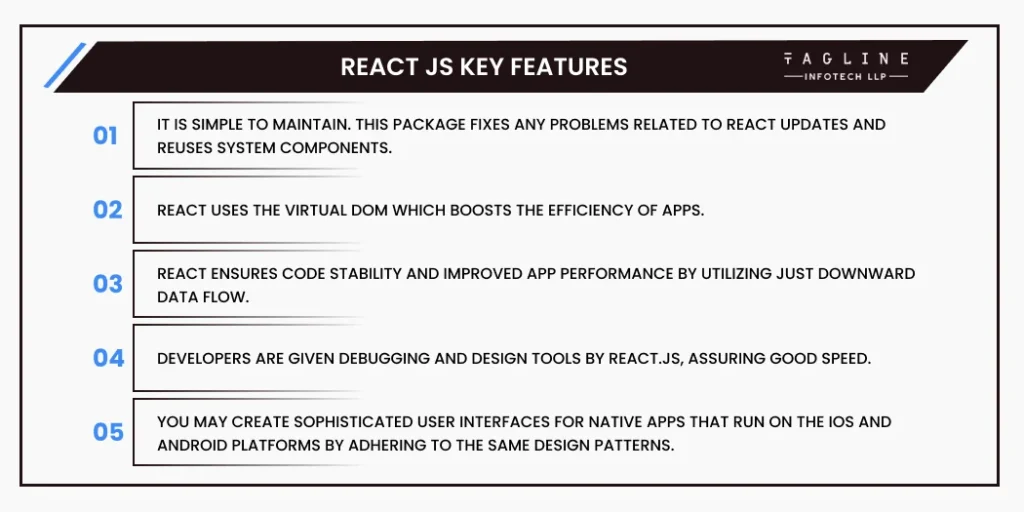
Let us know more about the main features of React.js:
“Vanilla JS Vs React JS: What To Choose For Your Development?”
– Also Read Article
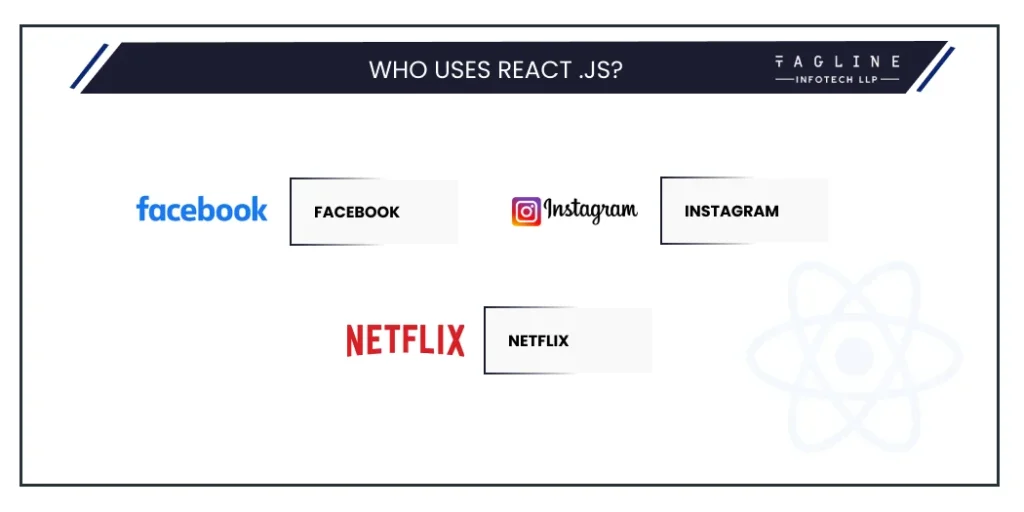
In this battle of node.js vs react, React, created by the Facebook team is utilized by many apps like the ones mentioned below:
Facebook: Facebook is a website that mainly depends on the user interface with its components. As a result, React.js is used to create practically all of the dynamic components of a Facebook online app.
Instagram: Instagram is another platform that effectively uses React. The app uses React for Google Maps APIs, geolocation, and other features.
Netflix: React.js is the technology behind Netflix’s gibbon platform. The DOM used by web browsers is replaced by low-performance TV devices on this platform. The Netflix team can increase speed, runtime performance, and modularity with the use of the React.js toolkit.
To resolve the React js vs Node js debate, consider the advantages and disadvantages of each.
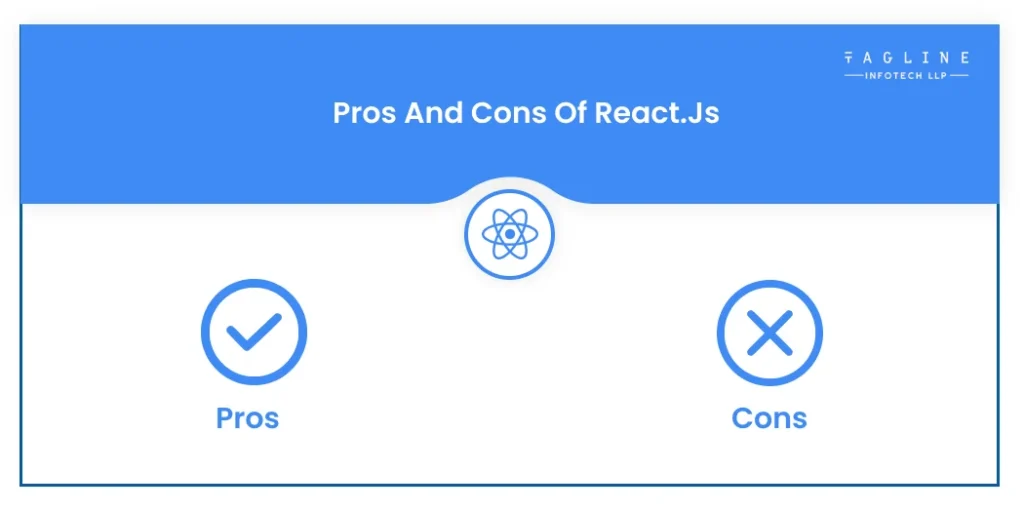
Are you wondering about the comparison of node js vs react js which is better then let me tell you that React.js is a perfect choice for you to create scalable server-side web applications.
Still unsure which framework to choose?
Contact our Developers now to get expert advice on whether Node.js or React.js is the best fit for your project.
React is best suited for single-page applications because it is a front-end library. Because React is best suited for single-page apps, using it exclusively for large or complex apps may be overkill. Because React only caters to application UI, combining it with another tech stack is required when developing complex apps.
Node.js is a core library that is primarily written in JavaScript and is a packaged compilation of Google’s V8 JavaScript engine. Taking into account Node’s benefits such as its rich ecosystem and asynchronous non-blocking I/O, we’ve compiled a list of Node.js use cases:
Data Streaming Apps: Some data streaming features are built using Node.js. For example, the files can be processed while they are still being uploaded. When data is received in a stream, it can be processed online without interruption. This is applicable to real-time audio or video encoding.
Building real-time apps like chat rooms necessitates high traffic capacity, lightweight architecture, and intense data flow requirements. These requirements can be efficiently met by combining Node js with React on the frontend and a JS framework such as Express.js on the backend.
Below you will see a difference between node js and react js so that you can choose the best framework for your next project. You will find the detailed comparison of React vs nodejs here.
Do you need a determined group of developers to make your existing application flawless and scalable?
Hire Node js developer from us to explore Node’s efficiency and performance to achieve desired results with fewer resources.
| POD | Node.js | React.js |
|---|---|---|
| Framework | The Node.Js framework is used for a website’s backend. | The React.Js framework is used to create web application user interfaces. |
| Framework Model View Framework Support | Node.JS supports software architectural patterns such as Model-View-Controller (MVC). | React.JS does not support the Model-View-Controller (MVC) architectural pattern. |
| Model View Framework Support Development process | It runs on Chrome’s v8 engine and uses an event-driven, non-blocking I/O paradigm developed in C++. | It uses Node.js to compile and optimise JavaScript code, and it’s simple to create UI Test cases. |
| Features | Node.js manages browser requests, authentication, and database calls. | It performs API calls and data manipulation in the browser. |
| Data Tracking | Real-time data streaming is handled simply here. | Because of the sophisticated design of React, the old technique is difficult to keep track of. |
| Library | The most extensive ecosystem of open-source JavaScript libraries. | Facebook supports an open-source JS library. |
| Programming Languages used | As a programming language, only JavaScript was used. | The languages used are JSX and JavaScript. |
| DOM Concept | The DOM (Document Object Model) concept is not applicable. | The Virtual DOM (Document Object Model) is used here to accelerate things. |
| Adaptability for users | Node.Js is simple to learn. | React Js is a tough cookie. |
Scalability | Extremely scalable. | Scalability is a problem. |
| Architecture | The architecture is straightforward. | The architecture of Js is complex. |
| Microservices | It is simple to write microservices because it is lightweight. | Writing microservices in React is difficult. |
| Dynamicity | It is capable of handling single operations efficiently. | The ability to handle dynamic events is React.Js’s main selling point. |
| Support | The code is written in Java and is easily convertible to machine code. | Both Android and iOS are supported. |
| Caching | It caches individual modules for faster execution. | The emphasis is on code reusability and the DOM. |
Hope that you understood the comparison of reactjs vs nodejs in this blog. At last, you can say that Node.Js is a perfect framework for you when you are trying to build different types of server-side web applications. Are you trying to figure out what is the difference between Node Js and React Js then this blog will be helpful to you.
While ReactJs is an ideal choice to create applications that can take dynamic inputs. Consult with a NodeJs development company if you want scalable and better-performing applications. Despite of the difference between react js and node js, developers can easily use both technologies for web app development.
Both frameworks can be used to build one application. If you want to take advantage of both frameworks then you should use the Node.Js framework as the backend and ReactJs framework as the application’s frontend. Both frameworks have huge community support and it can be very beneficial for you.
After a detailed comparison, you can say that both can be used to build scalable projects quickly. That’s why developers prefer to use Nodejs as it can be used to build scalable APIs. ReactJs is a preferable choice for development because ReactJs is used to build user-friendly interfaces.
You can say that React is harder than NodeJs. The developers will use React to create user interfaces as it is a front-end library. Nodejs is being used to develop the backend of the application.
React.js doesn’t require Node.js to run a project because React js gives you the authority to describe different types of user interfaces.
Yes, you can and many developers like to use both of them together. The combination of Nodejs and Reactjs helps you to handle high server requests.

Digital Valley, 423, Apple Square, beside Lajamni Chowk, Mota Varachha, Surat, Gujarat 394101
D-401, titanium city center, 100 feet anand nagar road, Ahmedabad-380015
+91 9913 808 2851133 Sampley Ln Leander, Texas, 78641
52 Godalming Avenue, wallington, London - SM6 8NW